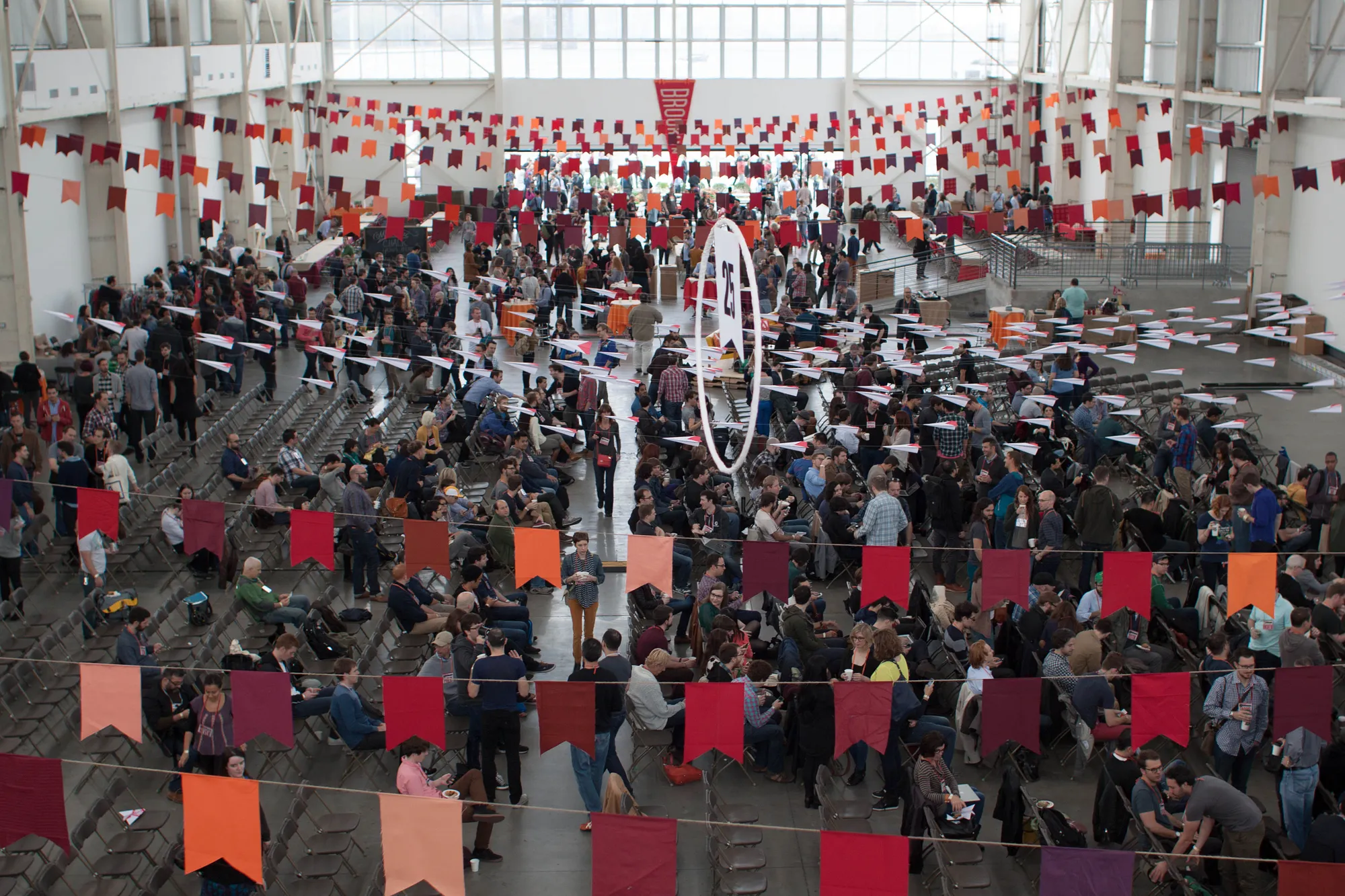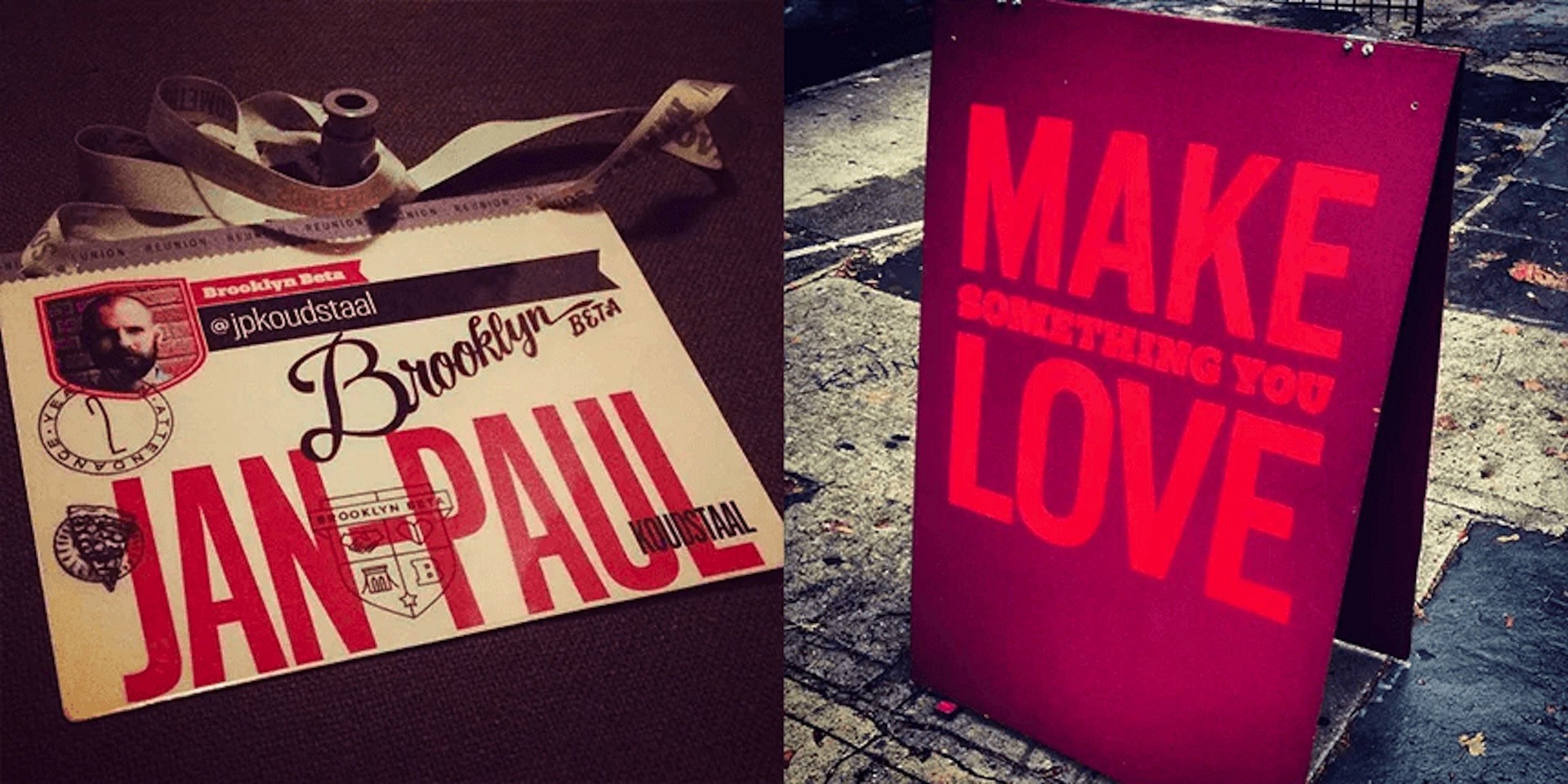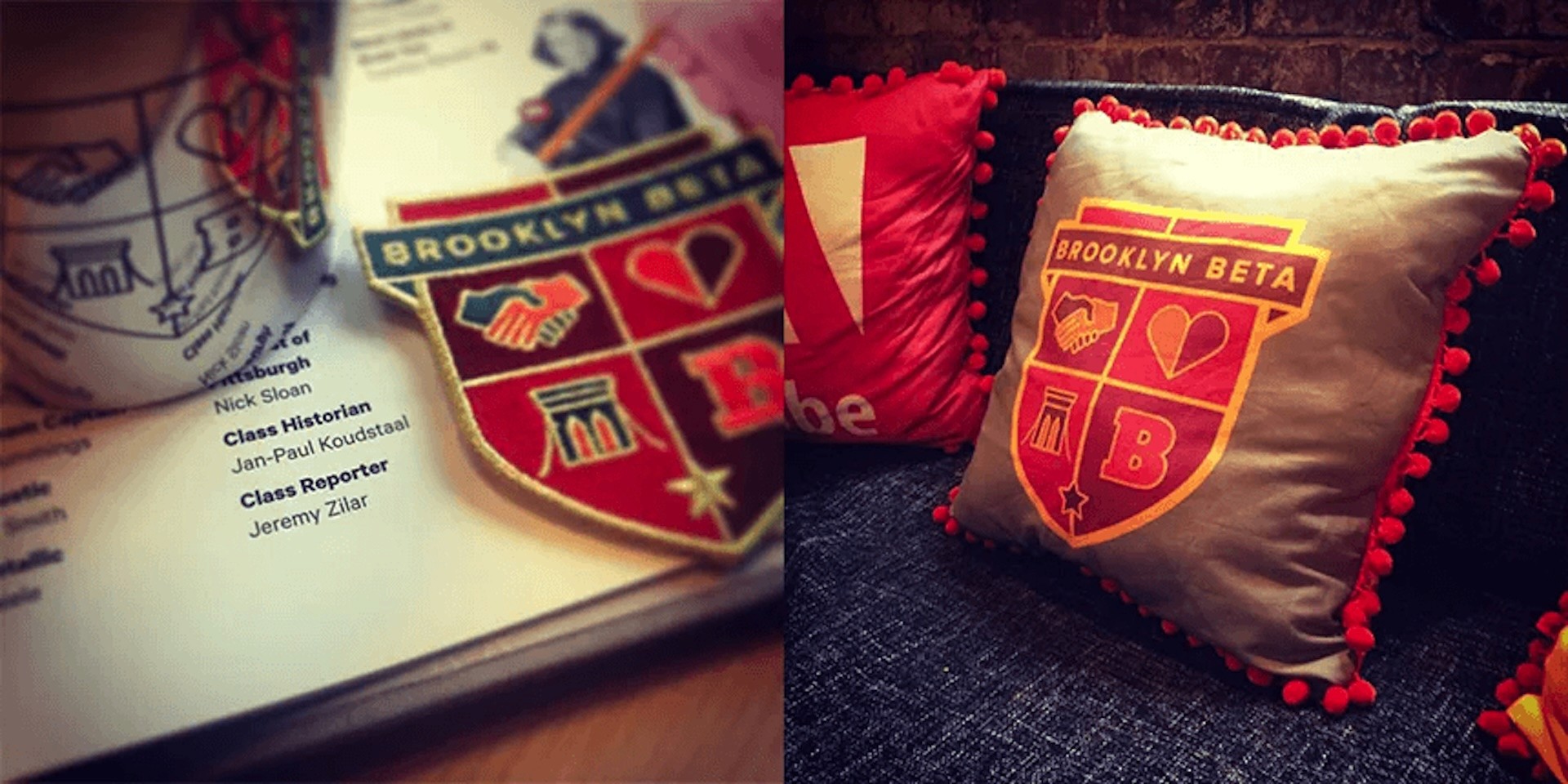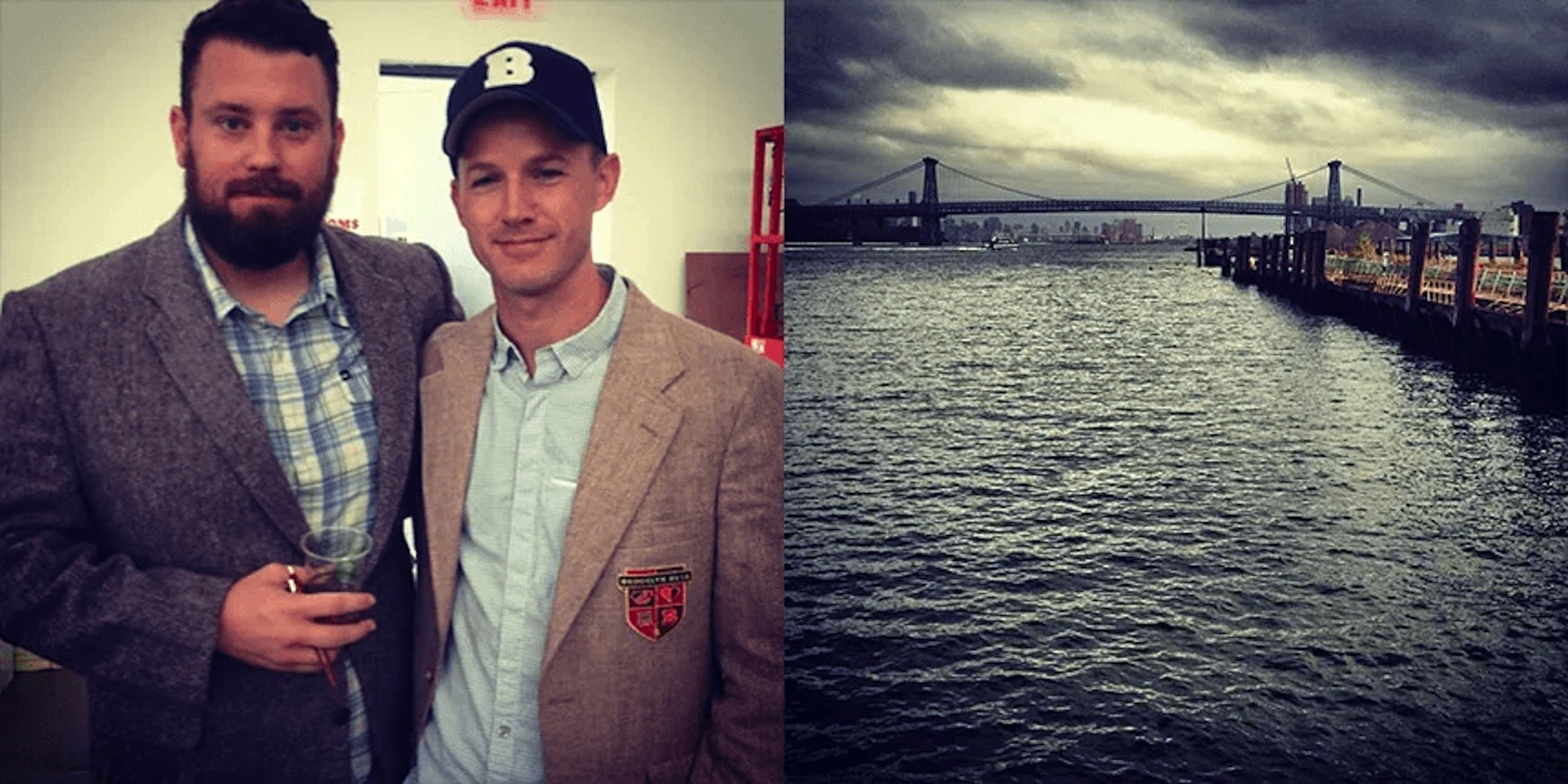Brooklyn Beta 2013 — A web conference unlike any other
Wednesday, October 30, 2013




There is no schedule or speaker announced. It takes place in an art gallery. There are many breaks between the talks. These are just some of the things that make Brooklyn Beta different from other web-conferences. But what Brooklyn Beta also does is remind us that we work in an industry full of nice, hard-working people who care about what they do. And for me it is a chance to meet almost everyone I follow on Twitter and that’s fun and scary at the same time.
There is no schedule or speaker announced. It takes place in an art gallery. There are many breaks between the talks. These are just some of the things that make Brooklyn Beta different from other web-conferences. But what Brooklyn Beta also does is remind us that we work in an industry full of nice, hard-working people who care about what they do. And for me it is a chance to meet almost everyone I follow on Twitter and that’s fun and scary at the same time.
This year was my second visit, last year was amazing and I wrote about that experience as well. Brooklyn Beta takes place at the Invisible Dog, an art-space in Brooklyn with room for about 300 people. Because the tickets are in such high demand they decided this year to have one of the three days at the Brooklyn Navy Yard with room for 1300 people.
Day one
First up was Geraldine Laybourne who used to work at Nickelodeon and Disney and is now chairman of Kandu. Kandu makes software that enables kids to build applications without coding. We saw a demo of the Kandu Builder resulting in an app where the user controls a dude that can move across the screen and when he collides with a hot-dog/pickle you hear a laser-sound. Yep. Awesome :)
Next was Jodi Leo, talking about how “boring” client-work can be really interesting. One of the things she showed was an example where she uses real photo’s instead of stock photo’s, which resulted in a significant rise in conversion.
The third speaker was David Marquet, who talked about leadership. David is a former captain of the USS Santa Fe, a nuclear powered submarine. In his very entertaining presentation he talked about tipping the leader-follower model on its head, giving control, and creating leaders at every level. Give the person with the expert knowledge the authority to make decisions. “Don’t take control, give control.”
View an animated version of his talk here.
After that Jonathan Schnapp talked about his passion-project: the world’s first shuffleboard night-club. The Royal Palms will boast 18 shuffleboard courts spread over 32,000 square feet, with a constant rotation of food trucks.
Next up was Tavi Gevinson (via Skype) who was interviewed by Ira Glass, an American public radio personality. Tavi started the very popular online magazine for teenage girls Rookie-mag at age 14 because she didn’t feel understood by Cosmo Girl or any other publication. The website focuses on issues impacting teenage girls and is written mainly by teenage girls.
The first day ended with a panel discussing mental health in IT. I was amazed by the crowd and how they opened up to talk about their battles with depression and sharing their experiences. Definitely a topic not talked about often enough. Read more about this at Prompt.

The Brooklyn Beta Badge was designed by Josh Smith
Day two
Day two kicked off with a talk by Sam Valenti, founder of record label Ghostly. He talked about using technology to connect artists & fans. We are no longer using the record-shop-guy to point us to good music, we can now use drip.fm for curated music, advanced releases, and more awesomeness reserved for the biggest music fans.
Next was Jonathan Hoefler of Hoefler & Frere-Jones, a type foundry, known for designing typefaces like Gotham, which is used by the Obama administration. He talked about his new webfont-service. He compared the way some fonts are converted for use on the web to the first bicycle. It had wooden wheels, because that’s what we used on carriages and was aptly named the boneshaker. Only after John Boyd Dunlop invented the inflatable tyre riding a bike became comfortable. H&FJ have redesigned their fonts for the web making them render properly on different devices & platforms. You can read more about their webfonts here.
“Typography can solve problems and encourage reading.”
Next Claire Sutcliffe talked about starting Codeclub, a club that gives every child a chance to code. It uses volunteers to teach children age 9-11 code in after-school clubs. They have been hugely started in april 2012 and now have 1303 codeclubs worldwide.
Oliver Jeffers, artist at the Invisible Dog, showed us some of his work and he drew the story of the incredible book-eating boy live on stage (!).
The final speaker of the day was Shelly Bernstein, Vice Director for Digital Engagement & Technology at the Brooklyn Museum ánd first ever speaker at Brooklyn Beta back in 2009. She talked about Go, a community-curated open studio project, where Brooklyn artists opened their studios to the community. Visitors could nominate and vote for artists for inclusion in a group exhibition at the Brooklyn Museum.

The Brooklyn Beta crest was designed by Alonzo Felix
Day three
The setting for friday was the Duggal Greenhouse with a spectacular view of the Manhattan Skyline and Williamsburg Bridge.
The first speaker was Tim O’reilly, the founder of O’Reilly Media and a supporter of the free software and open source movements, probably best known as publisher of IT-books. One of his quotes:
“Create more value than you capture. The Big Lie of modern business is that the bottom line is most important. What’s actually most important: making something valuable.”
The second speaker was Catherine Hoke (Rohr) of Defy Ventures. She talked about how she started a prison entrepreneurship program. In five years, about 500 students graduated from the program. About 60 of them started businesses when they left prison. More important, the recidivism rate of around 10 percent – was much lower than the U.S. average of 40 percent. When it was made public that Catherine had relationships with graduates of her prison program, she had to resign.
“What if you are known for the worst thing you’ve ever done”
After the scandal she received lots of support from people and started Defy Ventures. Defy Ventures offers former criminals an opportunity to launch their own business and become entrepreneurs. Three of the students came on-stage to talk about what they were in prison for and how Defy is helping them change their lives. A very humbling and emotional talk, my favorite of the day.
Chad Dickerson (ceo of Etsy) and Larry Morrissey (Major of Rockford, Illinois) talked about their partnership to teach people to make things and sell them on Etsy. They created a Craft Entrepreneurship Curriculum, with Etsy’s platform and marketplace as the learning lab. The aim of the project is to teach people that if they have a craft skill, entrepreneurship and economic opportunity are within reach.
“We don’t expect every student to become an Etsy seller, but rather to apply the skills they learn to any entrepreneurial path they want to follow.”
Joe Gebbia, co-founder of Airbnb asked everyone in the audience to write a small letter of gratitude to regain some of the community that rapid urbanisation has lost. Airbnb is a travel rentals company and in the aftermath of Hurricane Sandy one of their hosts wanted to know how she could list her space at no cost for those displaced by the disaster. Airbnb then created a feature that enables members to open their homes for free and 1439 Airbnb members have done just that.
The last speaker was Raul Gutierrez of Tinybop. Tinybop was born out of a belief that all kids are explorers. Tinybop’s first app is The Human Body where children can poke, probe, and examine the skeletal, muscular, nervous, circulatory, respiratory, and digestive systems.
“Make things you love with people you respect”
After that there was whiskey, beer, food trucks and lots of stand-up comedians like Reggie Watts,Wyatt Cenac and Judah Friedlander.

Our hosts, Cameron & Chris + the view of the Williamsburg Bridge was spectacular
So, what is Brooklyn Beta?
Well, it’s a nice excuse to go to the greatest city in the world. And it’s an opportunity to get away from all those glowing screens and meet the people that you admire. But it’s more than just that. The founders compare the conference to a MacGuffin, a term coined by Alfred Hitchcock to describe a plot device that exists solely to move the story along. And that’s what Brooklyn Beta hopes to do: inspire you, alert you to problems you never considered and give you a sense that your skills and your work are more important than you realize.
This year was my second visit, last year was amazing and I wrote about that experience as well. Brooklyn Beta takes place at the Invisible Dog, an art-space in Brooklyn with room for about 300 people. Because the tickets are in such high demand they decided this year to have one of the three days at the Brooklyn Navy Yard with room for 1300 people.
Day one
First up was Geraldine Laybourne who used to work at Nickelodeon and Disney and is now chairman of Kandu. Kandu makes software that enables kids to build applications without coding. We saw a demo of the Kandu Builder resulting in an app where the user controls a dude that can move across the screen and when he collides with a hot-dog/pickle you hear a laser-sound. Yep. Awesome :)
Next was Jodi Leo, talking about how “boring” client-work can be really interesting. One of the things she showed was an example where she uses real photo’s instead of stock photo’s, which resulted in a significant rise in conversion.
The third speaker was David Marquet, who talked about leadership. David is a former captain of the USS Santa Fe, a nuclear powered submarine. In his very entertaining presentation he talked about tipping the leader-follower model on its head, giving control, and creating leaders at every level. Give the person with the expert knowledge the authority to make decisions. “Don’t take control, give control.”
View an animated version of his talk here.
After that Jonathan Schnapp talked about his passion-project: the world’s first shuffleboard night-club. The Royal Palms will boast 18 shuffleboard courts spread over 32,000 square feet, with a constant rotation of food trucks.
Next up was Tavi Gevinson (via Skype) who was interviewed by Ira Glass, an American public radio personality. Tavi started the very popular online magazine for teenage girls Rookie-mag at age 14 because she didn’t feel understood by Cosmo Girl or any other publication. The website focuses on issues impacting teenage girls and is written mainly by teenage girls.
The first day ended with a panel discussing mental health in IT. I was amazed by the crowd and how they opened up to talk about their battles with depression and sharing their experiences. Definitely a topic not talked about often enough. Read more about this at Prompt.

The Brooklyn Beta Badge was designed by Josh Smith
Day two
Day two kicked off with a talk by Sam Valenti, founder of record label Ghostly. He talked about using technology to connect artists & fans. We are no longer using the record-shop-guy to point us to good music, we can now use drip.fm for curated music, advanced releases, and more awesomeness reserved for the biggest music fans.
Next was Jonathan Hoefler of Hoefler & Frere-Jones, a type foundry, known for designing typefaces like Gotham, which is used by the Obama administration. He talked about his new webfont-service. He compared the way some fonts are converted for use on the web to the first bicycle. It had wooden wheels, because that’s what we used on carriages and was aptly named the boneshaker. Only after John Boyd Dunlop invented the inflatable tyre riding a bike became comfortable. H&FJ have redesigned their fonts for the web making them render properly on different devices & platforms. You can read more about their webfonts here.
“Typography can solve problems and encourage reading.”
Next Claire Sutcliffe talked about starting Codeclub, a club that gives every child a chance to code. It uses volunteers to teach children age 9-11 code in after-school clubs. They have been hugely started in april 2012 and now have 1303 codeclubs worldwide.
Oliver Jeffers, artist at the Invisible Dog, showed us some of his work and he drew the story of the incredible book-eating boy live on stage (!).
The final speaker of the day was Shelly Bernstein, Vice Director for Digital Engagement & Technology at the Brooklyn Museum ánd first ever speaker at Brooklyn Beta back in 2009. She talked about Go, a community-curated open studio project, where Brooklyn artists opened their studios to the community. Visitors could nominate and vote for artists for inclusion in a group exhibition at the Brooklyn Museum.

The Brooklyn Beta crest was designed by Alonzo Felix
Day three
The setting for friday was the Duggal Greenhouse with a spectacular view of the Manhattan Skyline and Williamsburg Bridge.
The first speaker was Tim O’reilly, the founder of O’Reilly Media and a supporter of the free software and open source movements, probably best known as publisher of IT-books. One of his quotes:
“Create more value than you capture. The Big Lie of modern business is that the bottom line is most important. What’s actually most important: making something valuable.”
The second speaker was Catherine Hoke (Rohr) of Defy Ventures. She talked about how she started a prison entrepreneurship program. In five years, about 500 students graduated from the program. About 60 of them started businesses when they left prison. More important, the recidivism rate of around 10 percent – was much lower than the U.S. average of 40 percent. When it was made public that Catherine had relationships with graduates of her prison program, she had to resign.
“What if you are known for the worst thing you’ve ever done”
After the scandal she received lots of support from people and started Defy Ventures. Defy Ventures offers former criminals an opportunity to launch their own business and become entrepreneurs. Three of the students came on-stage to talk about what they were in prison for and how Defy is helping them change their lives. A very humbling and emotional talk, my favorite of the day.
Chad Dickerson (ceo of Etsy) and Larry Morrissey (Major of Rockford, Illinois) talked about their partnership to teach people to make things and sell them on Etsy. They created a Craft Entrepreneurship Curriculum, with Etsy’s platform and marketplace as the learning lab. The aim of the project is to teach people that if they have a craft skill, entrepreneurship and economic opportunity are within reach.
“We don’t expect every student to become an Etsy seller, but rather to apply the skills they learn to any entrepreneurial path they want to follow.”
Joe Gebbia, co-founder of Airbnb asked everyone in the audience to write a small letter of gratitude to regain some of the community that rapid urbanisation has lost. Airbnb is a travel rentals company and in the aftermath of Hurricane Sandy one of their hosts wanted to know how she could list her space at no cost for those displaced by the disaster. Airbnb then created a feature that enables members to open their homes for free and 1439 Airbnb members have done just that.
The last speaker was Raul Gutierrez of Tinybop. Tinybop was born out of a belief that all kids are explorers. Tinybop’s first app is The Human Body where children can poke, probe, and examine the skeletal, muscular, nervous, circulatory, respiratory, and digestive systems.
“Make things you love with people you respect”
After that there was whiskey, beer, food trucks and lots of stand-up comedians like Reggie Watts,Wyatt Cenac and Judah Friedlander.

Our hosts, Cameron & Chris + the view of the Williamsburg Bridge was spectacular
So, what is Brooklyn Beta?
Well, it’s a nice excuse to go to the greatest city in the world. And it’s an opportunity to get away from all those glowing screens and meet the people that you admire. But it’s more than just that. The founders compare the conference to a MacGuffin, a term coined by Alfred Hitchcock to describe a plot device that exists solely to move the story along. And that’s what Brooklyn Beta hopes to do: inspire you, alert you to problems you never considered and give you a sense that your skills and your work are more important than you realize.